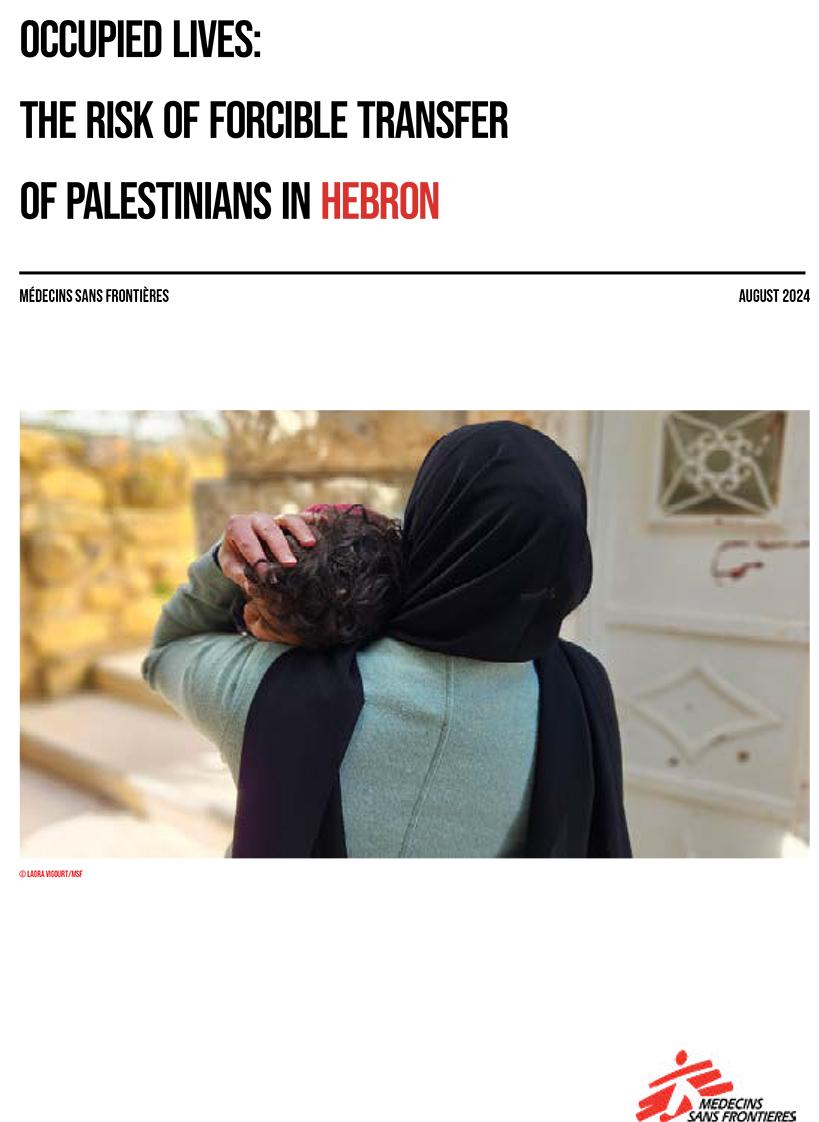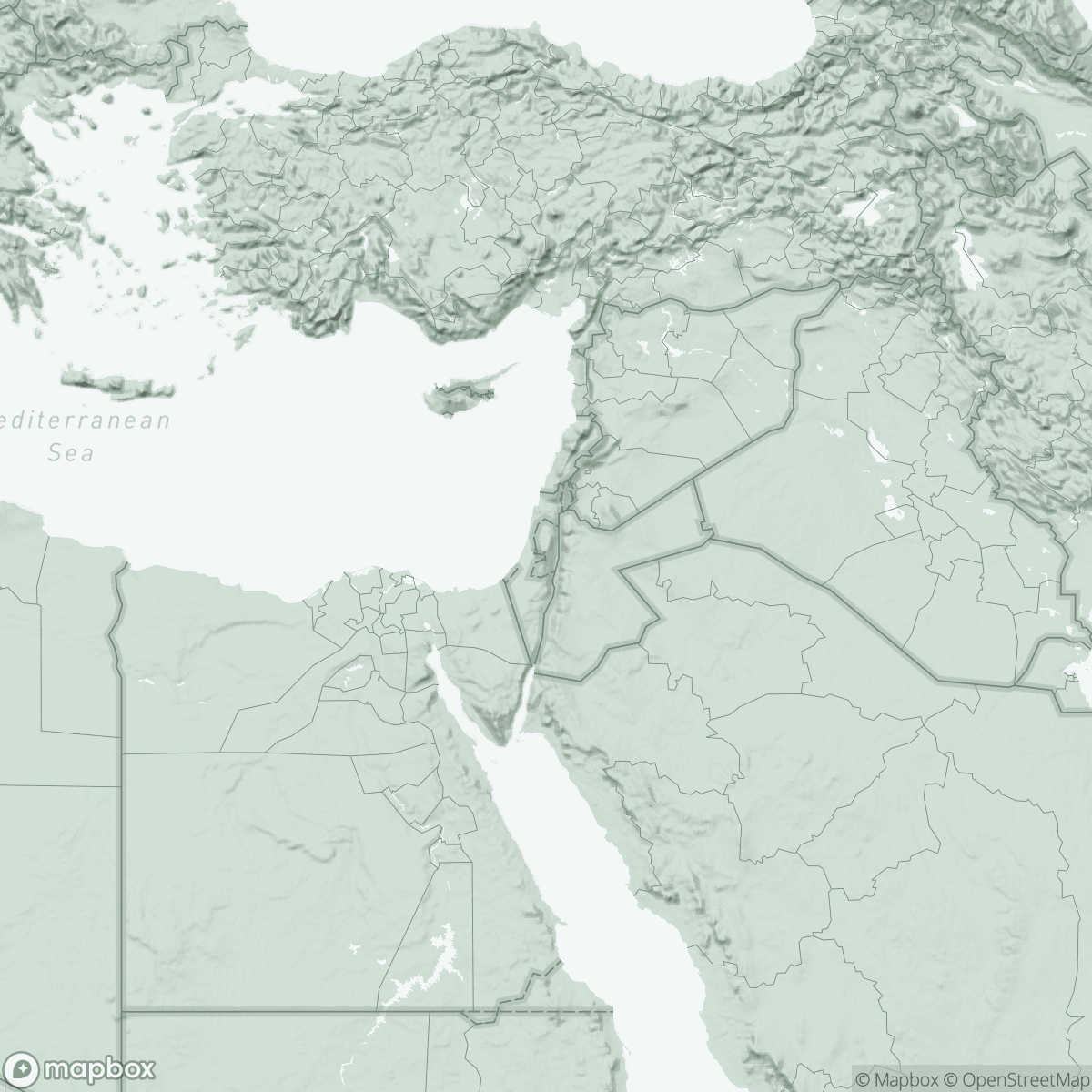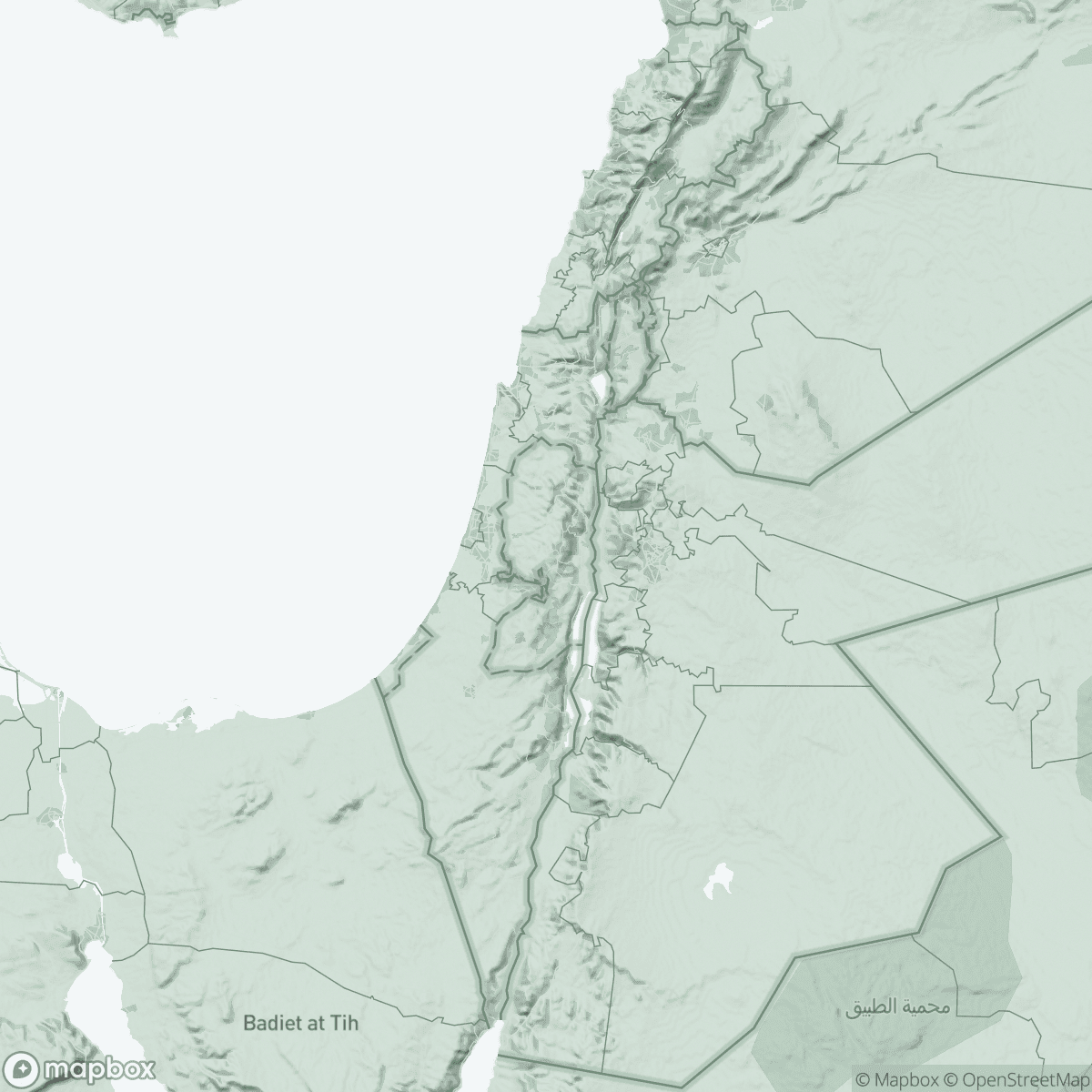
Hebron, West Bank: “You can’t get sick here, it’s not allowed”
In 1 click, help us spread this information :
Physical injuries, mental trauma and restricted access to medical care are an everyday reality for many Palestinians living in and around the West Bank city of Hebron, warns international medical organisation Médecins Sans Frontières (MSF) in a new report published today.

.
Palestinians in Hebron blocked from medical care.
In its new report, “Occupied lives: the risk of forcible transfer of Palestinians in Hebron”, MSF details the rapidly deteriorating access to medical care for Palestinians in Hebron because of restrictions imposed by Israeli forces and violence perpetrated by Israeli soldiers and settlers.
The movement restrictions and harassment and violence by Israeli forces and settlers is inflicting immense and unnecessary suffering on Palestinians in Hebron,” says MSF humanitarian affairs manager Frederieke van Dongen. “This is having a disastrous impact on people’s mental and physical health.”
“This is having a disastrous impact on people’s mental and physical health.”
Ministry of Health clinics across Hebron governorate have been forced to close, pharmacies have run short of medications, and ambulances transporting the sick and wounded have been obstructed and attacked. Faced with restrictions on their movements and the threat of violence, many sick people delay seeing a doctor or have no choice but to stop their treatment altogether. In addition, families across Hebron are experiencing severe financial hardship after losing their livelihoods, forcing many to cancel their health insurance, limit their food and go without essential medicines, which they can no longer afford.
Through the testimonies of patients and Palestinian communities supported by MSF, the report sets out the consequences Israeli-imposed movement restrictions and physical violence on Palestinians’ access to medical care and describes its devastating impact on people’s physical and psychological wellbeing.
One of the most restricted areas within the West Bank is known as H2, where 21 permanent checkpoints operated by Israeli forces regulate the movement of Palestinian residents and pose significant barriers to healthcare workers trying to access the area. For two months after 7 October, Ministry of Health clinics inside H2 were closed, and only one clinic was able to open as most of the Ministry of Health staff did not have permissions to cross the Israeli checkpoint into H2.
“There are no clinics operating within the closed area [H2] currently, and even if there were, residents live in fear of losing their lives for medicine,” said MSF staff member and resident of H2, speaking in November 2023 after Israeli forces blocked access to all Ministry of Health staff in the area forcing them to close their doors to patients. .
“You can’t get sick here, it’s not allowed". In the months directly following the attacks of 7 October, movement restrictions and violence in the H2 area of Hebron city were so intense that patients resorted to climbing over fences and rooftops, at the risk of their lives, just to access healthcare,” says van Dongen.

The continuous threat of violence places a severe strain on people’s mental health, say MSF staff.
When the soldiers come at night for home incursions my children and wife hide behind me for protection, but I cannot protect them,” says a Palestinian patient in Masafer Yatta, South Hebron Hills. “They have the power; they can do whatever they want.”
MSF’s report also sheds light on the forced displacement in Hebron governorate. Ever-more coercive and violent policies and practices by Israeli authorities and settlers are pushing a growing number of Palestinian families to flee their homes in what may amount to a forcible transfer, says MSF. The report describes how, since October 2023, MSF teams have responded to the urgent needs of more than 1,500 Palestinians across Hebron who were either forcibly displaced from their villages or whose houses were demolished and possessions destroyed.
Despite their responsibilities as an occupying power, Israel authorities' have failed to meet their obligations to the Palestinian people,” says Dongen.
Israeli policies implemented in Hebron are already having far-reaching consequences on Palestinian’s physical and mental health.
We call on the Israeli authorities to guarantee unimpeded access to healthcare and other essential services, to protect Palestinians against forced displacement, and to facilitate the safe return of displaced communities to their homes.


